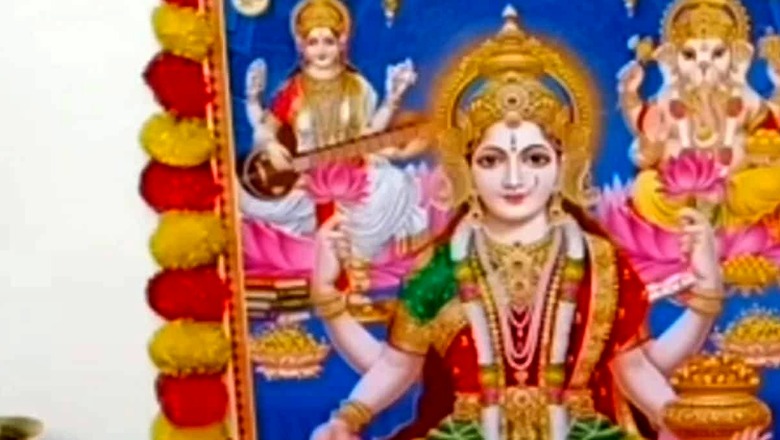
views
Diwali, also known as the festival of lights, is a significant celebration in Hinduism. It marks the return of Lord Rama to Ayodhya after 14 years of exile and symbolises the triumph of light over darkness and good over evil. On Diwali, devotees worship Goddess Lakshmi, the goddess of wealth, prosperity, and peace, to seek her blessings for happiness and success. Lighting lamps, or diyas, are an essential part of Diwali traditions.
Shubham Tiwari, the priest of Shri Sachcha Akhileshwar Mahadev Temple in Rishikesh, told Local 18 that Diwali will be celebrated on Friday, November 1, this year. The festivities will begin with Dhanteras on Tuesday, October 29. Diwali, known for lighting lamps in every corner of the house, holds immense cultural and religious importance in Hindu traditions.
In Indian culture, cow dung is considered sacred and is associated with Goddess Lakshmi, the goddess of prosperity and peace. According to beliefs, Goddess Lakshmi resides in cow dung, and lighting lamps made from it on Diwali is seen as a way to please the goddess and invite her blessings. The tradition symbolises the desire for happiness, wealth, and well-being in households. Cow dung lamps symbolise purity, prosperity, and connection to nature, making them a unique aspect of Diwali celebrations.
In Hinduism, the cow is regarded as sacred and highly worshipful, often referred to as ‘Gaumata’ symbolizing nourishment, life, and the earth itself. It is believed that 33 crore gods and goddesses reside within the cow, making it a vessel of divine energy. According to scriptures, different deities are said to inhabit specific parts of the cow’s body- Lord Brahma in the horns, Lord Shiva in the forehead and Lord Vishnu in the abdomen. This belief highlights the cow’s deep spiritual significance.
Worshipping the cow is considered an act of reverence toward all the gods and goddesses, bringing their blessings and spiritual protection. In connection with Diwali, lighting diyas (lamps) made from cow dung is believed to attract the special blessings of Goddess Lakshmi, the goddess of wealth and prosperity. These lamps are not only eco-friendly but also hold cultural and religious meanings.
Diyas made from cow dung is important from a religious point of view and beneficial from an environmental point of view. Cow dung, being natural and pure, does not harm the environment.




















Comments
0 comment